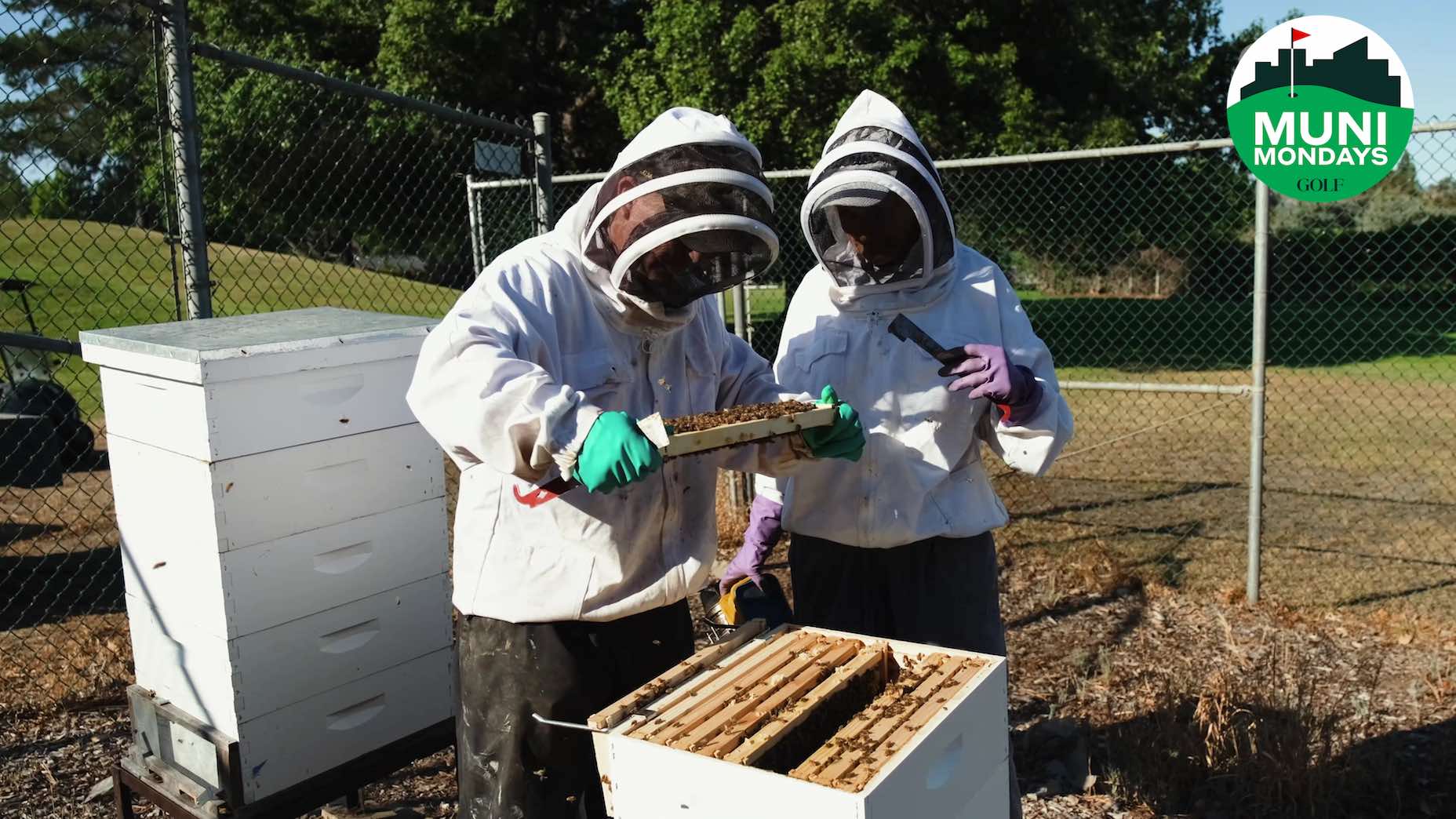Conversations with Jay Neunsinger invariably turn to the birds and the bees.
The birds are the barn owls and red-tailed hawks that flit about the branches at Boundary Oak Golf Course, the municipal track in Walnut Creek, Calif., where Neunsinger serves as superintendent. The bees are the residents of an apiary that stands beside the 17th tee.
(You can see the video on Neunsinger and Boundary Oak below.)
At 43, Neunsinger is a greenkeeper. He is also a beekeeper, a side gig he took up 10 years ago while tending to another Bay Area muni. One day, at that course, a swarm of honeybees showed up. Neunsinger was unsure what to do with them, until he came upon a hive box that someone had abandoned on a nearby curb. With help from a local apiarist, Neunsinger coaxed the swarm into the hive, providing the bees with an on-course home and supplying himself with a newfound hobby.
“There was a learning curve for sure,” Nuensinger says. “But the more I educated myself on bees, the more interested in them I got.”
In 2016, shortly after moving over to Boundary Oak, Neunsinger built a fenced-in apiary, one of several pillars of an eco-minded operation at the muni that has earned him multiple environmental stewardship awards. In addition to the hives, Neunsinger keeps bat and bluebird boxes at Boundary Oak. In spring, he cultivates a pollinator garden, which attracts an Audubon-worthy array of avian and insect life.
Honeybees, of course, are the poster kids of pollinators, and their dwindling populations have implications for biodiversity and the sustainability of global food supplies. To help counter that trend, Neusinger has donated hives to other Bay Areas courses, as well as to wineries and other properties where ample green space provides a honeybee haven.
Like any seasoned beekeeper, Neunsinger has been stung a time or two, but such incidents have mostly resulted from him meddling with the bees and not the other way around. The honeybees don’t go after him, or golfers.
“They’ve got better things to do,” Neunsinger says.
Among their tasks is producing honey. Though the size of that harvest varies from one autumn to the next, there’s enough supply each year for Neunsinger to bottle and sell it online; he donates the proceeds to local junior golf programs.
Call it a sweet byproduct of a project with a broader environmental purpose.
“It’s hard to quantify the impact of the bees,” Neunsinger says. “But I know we’re doing the right thing.”
This is part of our Muni Monday series, spotlighting stories from the world of city- and county-owned golf courses around the world. Got a muni story that needs telling? Send tips to Dylan Dethier or to munimondays@gmail.com and follow Muni Mondays on Instagram.
